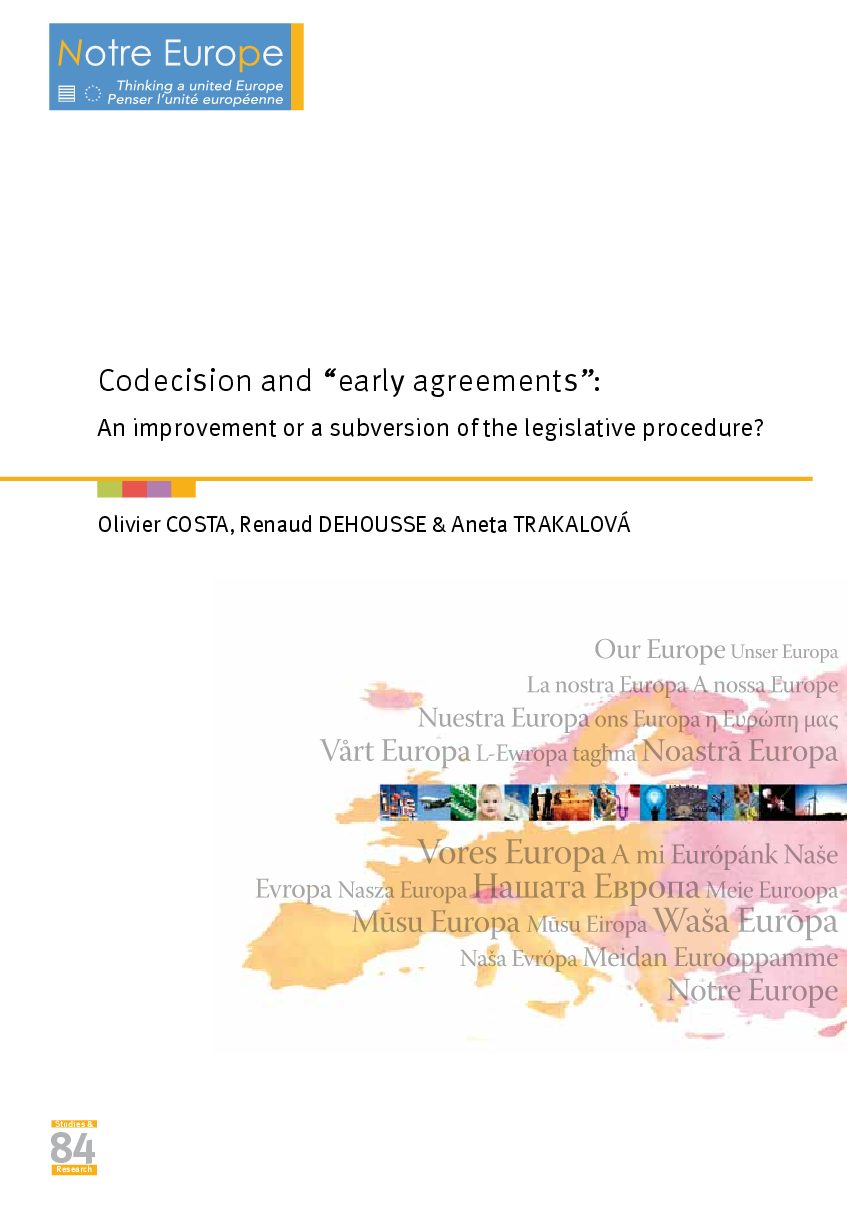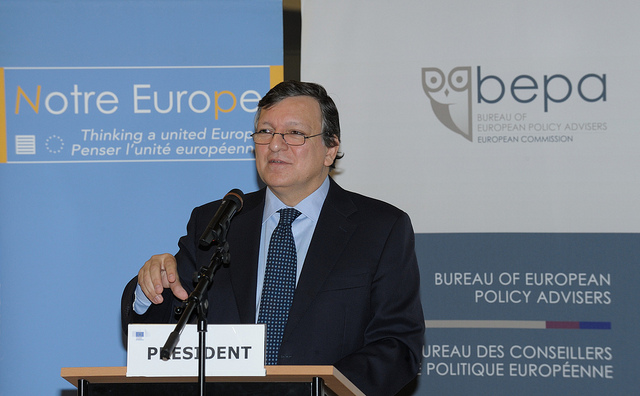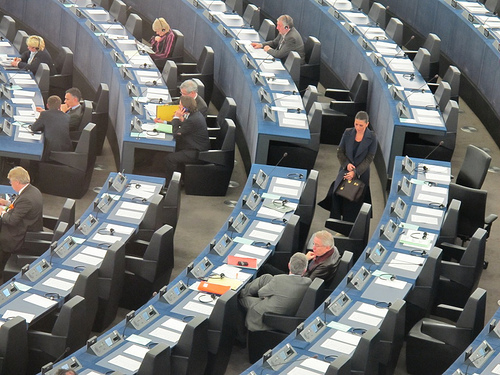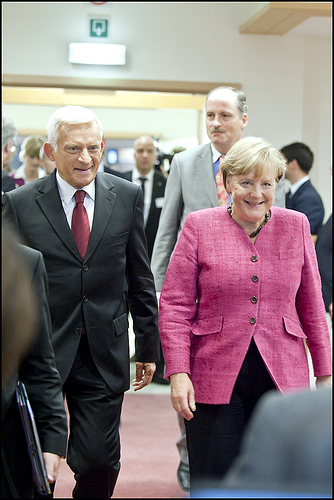Report
Co-decision and ‘early agreements’: an improvement or a subversion of the legislative procedure?
Is the community method still relevant? To give a documented answer to this question, we needed to take a thorough look at how the institutional triangle has changed to accommodate new demands. This study, with those which will follow, is concerned with such questions. Together they aim
to provide an up-to-date picture of the community method as practised, and thus to give us a
better understanding of its relevance in today’s Europe.
Is the community method still relevant? To give a documented answer to this question, we needed to take a thorough look at how the institutional triangle has changed to accommodate new demands. What use does the Commission make today of its right of initiative? Is voting practice the same in an enlarged Union as previously? The European Parliament’s growing power is surely the most remarkable change of the last twenty years – what has been its impact?
This study, with those which will follow, is concerned with such questions. Together they aim to provide an up-to-date picture of the community method as practised, and thus to give us a
better understanding of its relevance in today’s Europe.
Of all the institutions, the European Parliament has undoubtedly changed the most in the last two decades. It has more members and above all more functions. The Lisbon Treaty makes it a fully-fledged legislator, on the same level as the Council. This development has meant considerable changes in the assembly’s procedures. Of these, the most important is related to the emergence of “early agreements”, the subject of this study.
This practice, while doubtless effective, poses real questions about transparency. The agreements in question are negotiated by a small number of individuals with only limited possibility for debate, whereas the European Parliament’s powers were increased precisely to democratise decision-making. Numerous are those, particularly among parliamentarians, calling for better regulation of the practice.
SUR LE MÊME THÈME
ON THE SAME THEME
PUBLICATIONS
The Community Method, the EU’s “default” operating system

The move from a functionalist to democratic method

Triggering European politics to reinforce the Community method

Seminar on the Community Method. Elements of Synthesis

For a revival of Europe

The Community Method: Historical Evolutions and Political Challenges

José-Manuel Barroso ‘ Speech et the BEPA-Notre Europe seminar on the Community method

The new discourse on the Method

Decision-making in the European Union

Intergovernmental method or community method: an irrelevant debate?





















